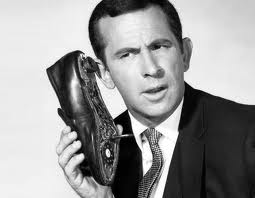AT&T is watching you.
America’s second largest cell phone company admitted Sunday it is quietly tracking the habits of customers using their AT&T cell phones to learn what they do with their time, where they work and play, how long they spend in traffic, what pubs they visit, and how long they stay.
The industry calls it “data mining,” and the treasure trove of information companies clandestinely collect about their customers could eventually become a major profit center when packaged and resold to third parties. AT&T researchers are experimenting with “big data,” according to a weekend report in the Star Ledger, sifting through vast amounts of location information customers unknowingly provide the phone company that could fetch a high price on the open market.
The newspaper reports AT&T Labs has been quietly following its customers in Morristown, N.J. in an experiment to prove its “big data” concept.
AT&T researchers mapped the movement of workers in and out of the city each day, following customers from their home to the office and beyond to favored nightspots such as bars and restaurants — all by tracking where customers’ cell phones were at different times of the week.
The result was a highly-detailed “snapshot” of daily life in Morristown. Plotted on a map, AT&T knows that workers commute from as far east as Queens, N.Y., and the city’s nightlife attracts people from northern New Jersey and Brooklyn.
Company researchers tracked customers as they moved from cell tower to cell tower as they traveled, and from that the company was able to predict patterns of behavior from local residents. For example, AT&T knows your commuting shortcuts, and can deduce (and share with urban planners) problem intersections or likely workarounds residents will typically use when traffic snarls.
Such sophisticated tracking alarms privacy advocates despite company claims personally identifiable information is scrubbed before accessed by third parties. AT&T customers are automatically opted-in for data mining when they sign up for AT&T cell service. It is included in the company’s terms of service, AT&T says.
The Morristown project was considered experimental, but AT&T has high hopes it can eventually use its “big data” concept to create a new source of revenue for the company.
AT&T is not alone using tracking capabilities to monitor its customers. Verizon is not far behind, the newspaper reports. Google itself tracks smartphone owners to help spot traffic jams for the company’s “live traffic” maps.
Privacy advocates question how informed customers are about location tracking and data mining, and what companies can ultimately do with the data.
Lee Tien, senior staff attorney with the Electronic Frontier Foundation, a San Francisco-based nonprofit organization specializing in free speech, privacy and consumer rights, told the newspaper consumers have a right to be concerned.
“One of the things you learn in kindergarten is that if you want to play with somebody else’s toys, you ask them,” Tien said. “What is distressing, and I think sad, about the big data appetite is so often it is essentially saying, ‘Hey, we don’t have to ask.’ ”


 Subscribe
Subscribe

